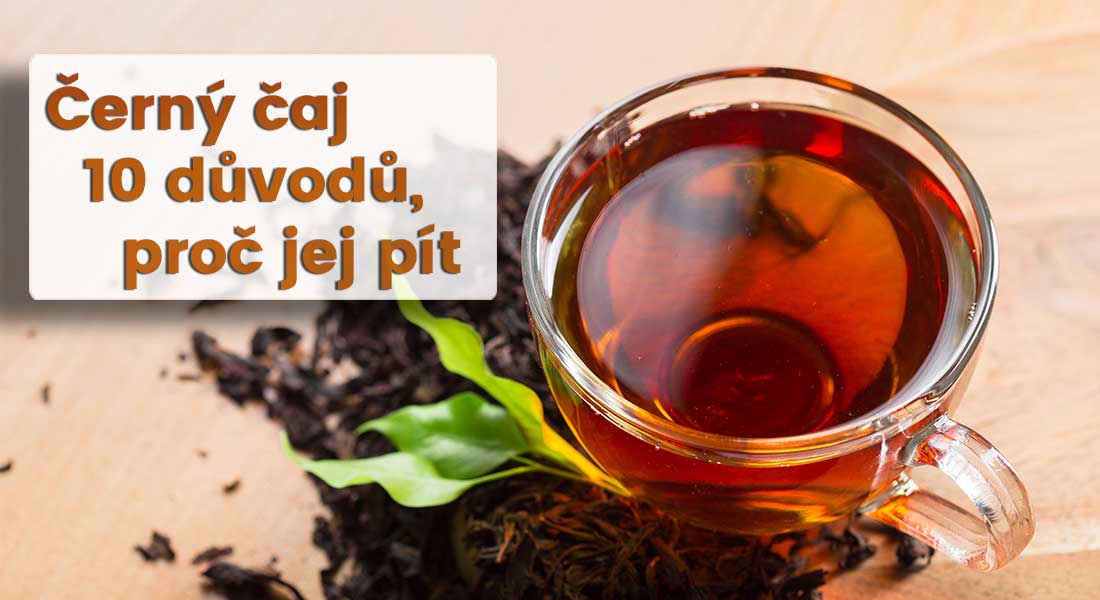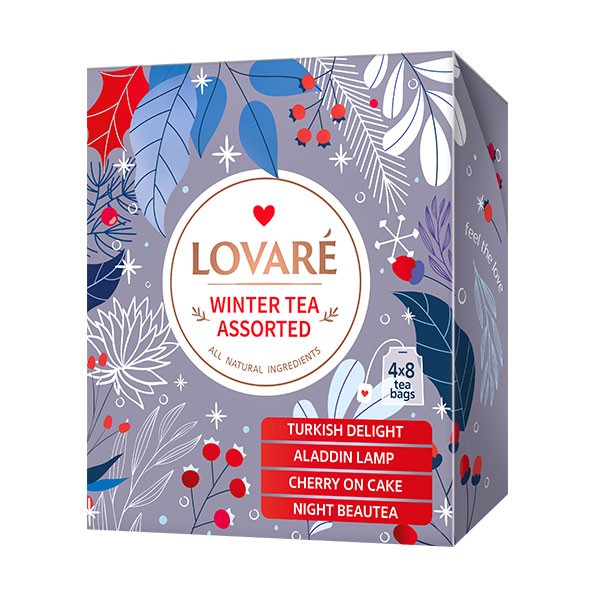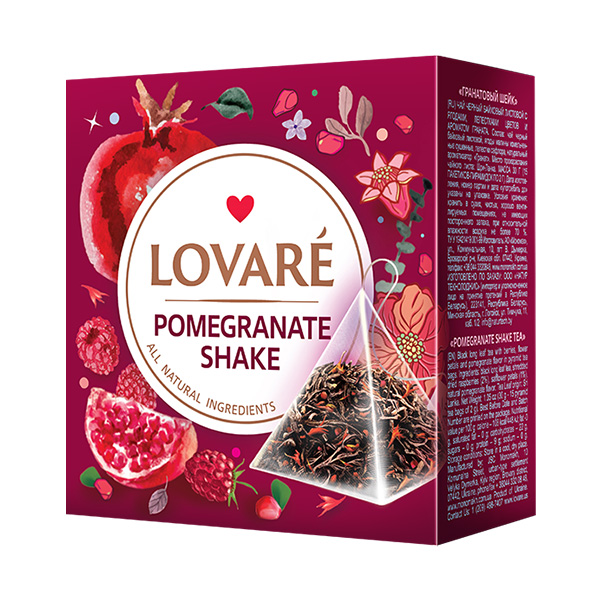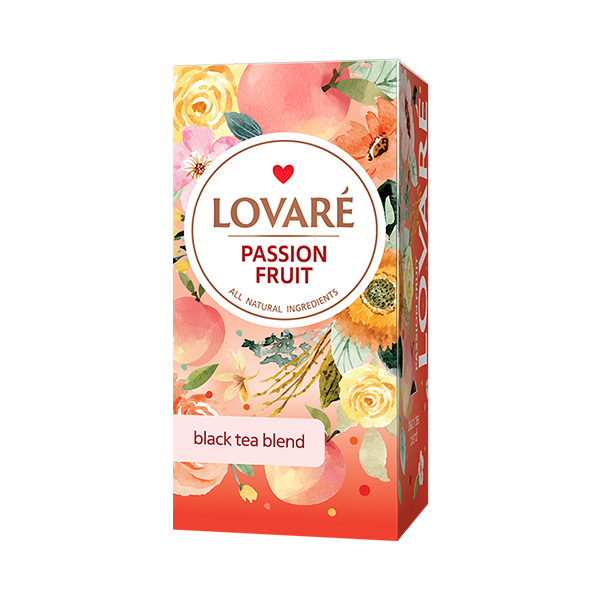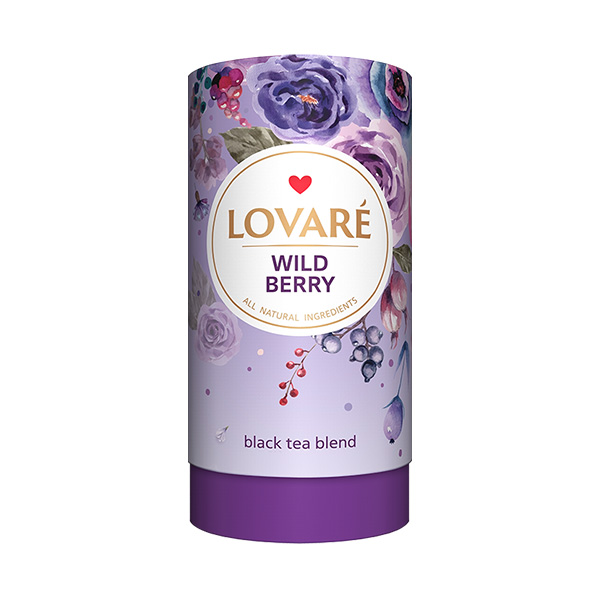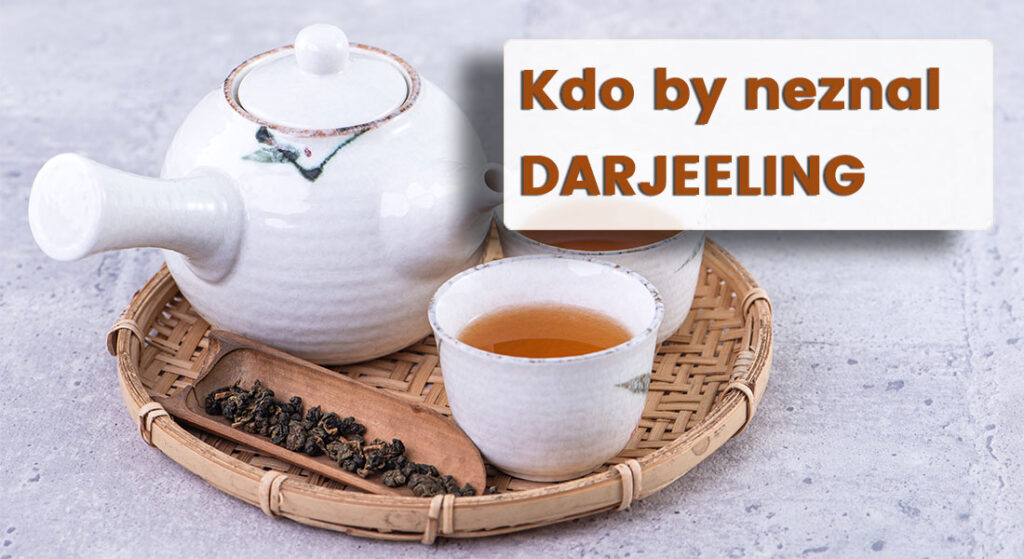The taste of black teas, which tend to be more pronounced than those of green or white teas, may not suit everyone. Due to longer oxidation, they are characterized by greater bitterness and sometimes a sour taste. Whether you belong to people who love black tea or those who prefer to stay away from it, the following lines are definitely worth reading. and thanks to the way it is processed, the effects of black tea on our health are extremely positive. Below you will find 10 good reasons to treat yourself to a few cups a day.
1. It slows down aging
Like other types of tea, the black contains a large amount of antioxidants. These act to reduce free radicals in the body and thus support cellular health. Thanks to this, antioxidants can even help prevent degenerative diseases and some forms of cancer.
There are many different antioxidant supplements on the market. However, the best way to consume them is through food and drinks, as we are able to absorb the maximum volume from this form. Some research has found that taking antioxidant supplements can harm your health.
The high content of antioxidants and polyphenols also helps prevent premature aging of the skin and improves its quality, helps reduce wrinkles and improves hair condition.
2. Improves heart health
Black tea also contains flavonoids, which are a special type of antioxidant. In addition to tea, we would also find them in vegetables, fruits, red wine and dark chocolate. Flavonoids benefit heart health and regular consumption can help reduce the risk of heart diseases such as high blood pressure and high cholesterol. One large study found that people who drink tea daily have about an 8% lower risk of heart disease and a 10% lower risk of major heart events.
Note: tea in this case means only the extract from the leaves of camellia sinensis (garlic tea plant), i.e. real tea, not fruit or rooibos pickles.
3. Lowers LDL cholesterol
The body contains two lipoproteins that transport cholesterol throughout the body - low-density lipoprotein (LDL) and high-density lipoprotein (HDL). LDL is considered "bad" because it transports cholesterol to cells throughout the body. HDL is considered "good" because it instead transports cholesterol away from the cells to be removed from the bloodstream.
Excess LDL lipoproteins can cause cholesterol to build up in the arteries and cause deposits called plaques. These often contribute to heart failure or stroke. But the researchers found that drinking black tea significantly reduced LDL cholesterol by up to 4.64 mg/dL. Drinking tea was even better for people with a higher risk of cardiovascular problems.
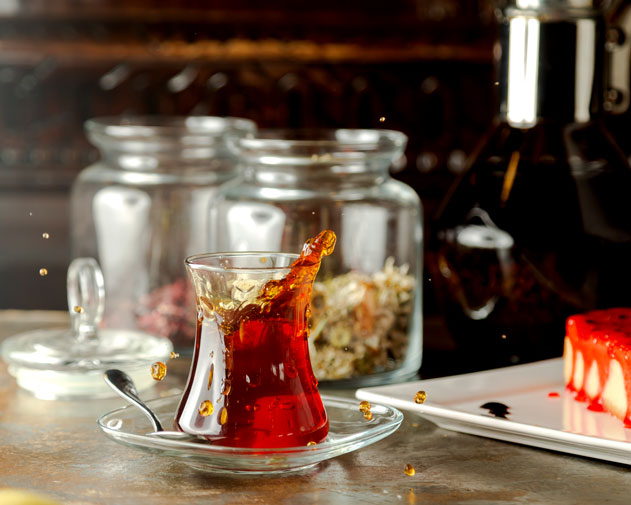
4. It helps with intestinal problems
Our intestines are home to a huge number of bacteria. While some are good for our health and we need them, some can cause us problems. It is also a fact that the type of bacteria in the gut can play an important role in reducing the risk of inflammatory bowel disease, type 2 diabetes, cardiovascular disease, obesity and even cancer.
The polyphenols in black tea help maintain a healthy gut by promoting the growth of good bacteria and reducing the activity of harmful bacteria. The improved condition of the gut microbiome then supports immunity by helping to repair the lining of the digestive tract, which is a kind of gate for bacteria and viruses that cause various diseases.
For intestinal problems, it is advisable to drink pure black tea without flavor and various other ingredients to make their effect as fast and effective as possible.
LOVARÉ Love Blossom 48g (24 sáčků, černý čaj)
LOVARÉ Night Beautea 48g (24 sáčků, černý čaj)
Tento porcovaný černý čaj od Lovaré pochází z vybraných keňských plantáží, což zaručuje jeho vysokou kvalitu a intenzivní chuť.
Složení: čínský zelený dlouholistý čaj, maliny 5 %, sekaný ananas a jablko 1 %, okvětní lístky 0,5 % (světlice barvířská, růže, chrpa polní a měsíček lékařský), přírodní malinová příchuť.POŠKOZENÝ RICHARD Royal Palace 75.5g (kolekce čajů, 40 sáčků)
RICHARD Royal Tiger BABY 34g (20 pyramid, černý čaj) DMT 9/24
RICHARD Royal Tiger KING 34g (20 pyramid, černý čaj) DMT 9/24
RICHARD Royal Tiger QUEEN 34g (20 pyramid, černý čaj) DMT 9/24
RICHARD Royal Tiger QUEEN 17g (10 pyramid, černý čaj) DMT 9/24
RICHARD Royal Tiger KING 17g (10 pyramid, černý čaj) DMT 9/24
RICHARD Royal Tiger BABY 17g (10 pyramid, černý čaj) DMT 9/24
LOVARÉ WINTER Black Tea Assorted coll. 64g (32 sáčků, kolekce čajů)
LOVARÉ Creme Brulee 30g (15 pyramid, černý čaj)
LOVARÉ Bergamot Vanilla 30g (15 pyramid, černý čaj)
LOVARÉ Pomegranate Shake 30g (15 pyramid, černý čaj)
LOVARÉ 1001 Nights 48g (24 sáčků, černý a zelený čaj)
Černý a zelený čaj LOVARÉ 1001 noc je kombinace nejlepších cejlonských a čínských čajů. Porcovaný čaj, který spojuje bohatství černého cejlonského čaje s jemností čínského zeleného čaje a osvěžujícími akcenty ovoce a květin.
Složení: černý cejlonský čaj, čínský zelený čaj 10 %, jablko 1,5 %, okvětní lístky 1,5 % (chrpa polní, měsíček, světlice barvířská, růže), přírodní hroznová příchuť.LOVARÉ Passion Fruit 48g (24 sáčků, černý čaj)
LOVARÉ Champagne Splashes 30g (15 pyramid, černý a zelený čaj)
Černý a zelený čaj Champagne Splashes je neodolatelnou volbou pro všechny, kteří touží po jedinečném spojení čerstvosti lesa a bohaté chuti čajového rituálu.
Složení: cejlonský černý čaj, čínský zelený čaj Sencha 12 %, sušené lesní jahody 0,8 %, okvětní lístky chrpy polní 0,3 %, přírodní příchuť lesních jahod5. Helps lower blood pressure
High blood pressure is the cause of many health problems. These include an increased risk of heart and kidney failure, stroke, vision loss and, in severe cases, heart attack. The most effective way to prevent high blood pressure is, of course, maintaining a healthy lifestyle.
Drinking black tea and tea as such can also contribute to it. It helps to reduce stress, which is one of the triggers of high blood pressure. The effects of black tea also include promoting relaxation and relaxation. You will achieve even better results if you include the tea preparation ritual itself in the relaxation exercise. powdered black tea is more suitable for this.
6. Lowers blood sugar
Did you know that type 2 diabetes, obesity, cardiovascular disease, kidney failure and even depression can all be linked to high blood sugar?
Research suggests that drinking black tea can help lower blood sugar levels after a main meal or snack. People who drank black tea had significantly lower blood sugar levels after a meal compared to those given a placebo. Other studies suggest that black tea may help increase the body's use of insulin, especially after a high-sugar meal.

7. Increases energy and alertness
If you need to wake up, but at the same time you are not a fan of caffeine, black tea is an excellent alternative. It contains a relatively small amount of caffeine and an amino acid called L-theanine, which increases activity in the brain. The combination of these two substances improves alertness and concentration, and thanks to the lower caffeine content, the risk of symptoms of its excessive consumption - nervousness or headaches - is reduced. Very quickly and easily you can prepare portioned tea in bags or pyramids.
Participants in one study were tasked with consuming either 250ml of black tea or the same amount of water. Then the researchers tried to evaluate the state of their perception, attention and ability to concentrate. Tests of executive function, sustained attention, memory and mathematical calculations showed that those who consumed black tea were able to solve cognitive tasks significantly faster, had better memory and made fewer mistakes.
8. Relieves headache
If you suffer from mild headaches, try fighting them with black tea. Due to its moderate caffeine content, it constricts blood vessels, which are often responsible for headaches. The caffeine present in black tea can also help increase the effectiveness of pain relievers such as aspirin and ibuprofen.
However, people who drink tea regularly should avoid this method, as black tea can, like coffee, cause pain, on the contrary, if consumed in excess. The effects of black tea do not logically multiply with the amount you consume.
9. Improves oral health
Unlike other caffeinated beverages that can contain loads of sugar, tea has been shown to be good for oral health. Studies have shown that black tea contains compounds that attack harmful bacteria in the mouth. It also reduces the production of acid, which has a negative effect on the health of the teeth and eventually cause cavities. While black tea doesn't replace standard oral hygiene practices like brushing and flossing, it can provide an extra boost when it comes to oral health.
10. Fights colds
Somewhat expectedly, the effects of black tea also include its most traditional use. If you're feeling down, treat yourself to a cup of hot tea! Advice you heard as a child and certainly as an adult.
Černý čaj může skutečně pomoci zmírnit příznaky běžného nachlazení, nebo dokonce nachlazení úplně odvrátit. Obsahuje katechiny s antivirovými vlastnostmi, které přispívají k prevenci běžných onemocnění, jako je nachlazení a chřipka.
LOVARÉ Night Beautea 80g (sypaný, černý čaj)
LOVARÉ Love Blossom 80g (sypaný, černý čaj)
LOVARÉ Winter Tea 80g (sypaný, černý čaj)
LOVARÉ Wild Berry 80g (sypaný, černý čaj)
LOVARÉ Passion Fruit 80g (sypaný, černý čaj)
LOVARÉ 1001 Nights 80g (sypaný, černý a zelený čaj)
Černý a zelený čaj LOVARÉ 1001 Nights je jako symfonie chutí a vůní, kde se střetávají různorodé ingredience, vytvářející harmonickou a osvěžující kompozici.
Složení: cejlonský dlouholistý černý čaj, čínský zelený dlouholistý čaj Sencha 12 %, jablko 3 %, květy chrpy polní, měsíčku lékařského a světlice barvířské 3 %, poupata a lístky růže 3 %, přírodní hroznová příchuť. Balení obsahuje 15 filtračních sáčků Lovaré.LOVARÉ Champagne Splashes 80g (sypaný, černý a zelený čaj)
Černý a zelený čaj LOVARÉ Champagne Splashes je vynikající kompromis černého a zeleného čaje obohacený příchutí lesních jahod.
Složení: cejlonský černý čaj, čínský zelený čaj Sencha 12 %, sušené kousky lesních jahod 3 %, okvětní lístky chrpy polní 1 %, přírodní příchuť lesních jahod. Balení obsahuje 15 filtračních sáčků Lovaré.THURSON Ripple Blitz 75g (sypaný, černý čaj)
THURSON Mystic Twist 75g (sypaný, černý čaj)
Negative effects of black tea
Drinking black tea in moderation is generally beneficial for most people. The correct amount to drink is not known. The composition and quality of other tea components (flavors, fruit components, etc.) can vary considerably. This makes it difficult to set a standard dose. However, drinking large amounts of black tea—more than four or five cups a day—can cause health problems. Especially because of the side effects of caffeine. Side effects of black tea (most commonly in high amounts) may include:
- anxiety, trouble sleeping,
- faster breathing
- headache,
- increased urination,
- irregular heartbeat,
- nausea and vomiting
- nervousness and restlessness,
- ringing in the ears,
- high blood pressure,
- anemia.

